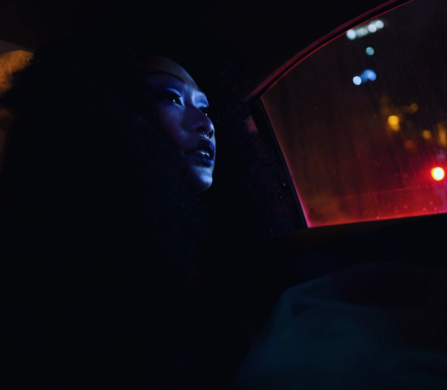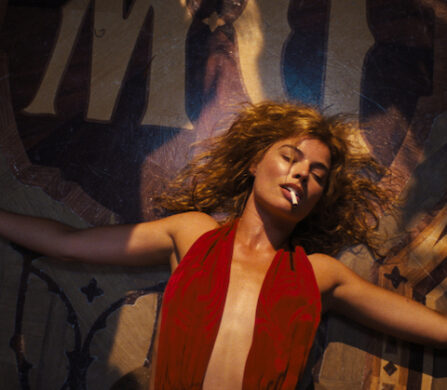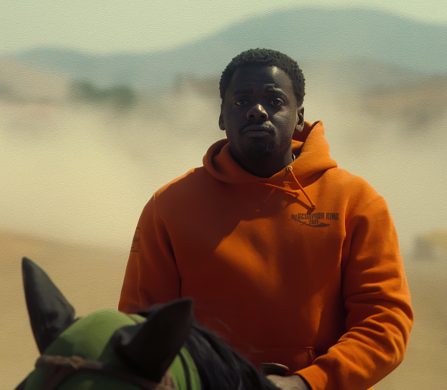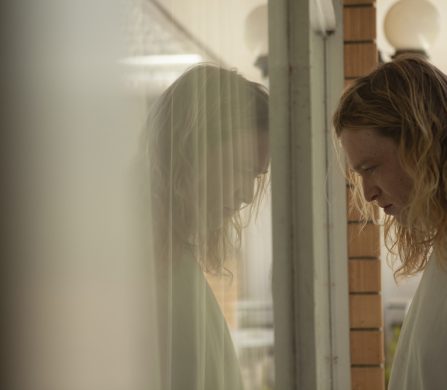Schön! speaks to the director of an astonishing new film.
Bang Gang is not your typical tale of teenage love and coming of age. Many teens have sex, but these ones have a lot of it, with a lot of people. George, a pretty and popular girl, is in love with local lothario Alex, who lives alone in a large house while his mother is away. Disappointed in love, George initiates a more extreme version of spin the bottle that quickly escalates into regular group sex parties – or Bang Gangs – at Alex’s house, which are filmed and shared online. However, it’s only a matter of time before the adults in this small town discover that the kids are not alright, and scandal ensues.
It’s understandable if watching an hour and a half of adolescents getting it on doesn’t sound like your cup of tea, but writer and director Eva Husson has delivered a sensitive, intelligent and thought provoking film with a remarkable sense of realism. Through it, we revisit the exquisite highs and lows of our first loves, our sexual awakenings and the trials and tribulations of becoming an adult. Schön! sits down with Husson to find out why and how she made Bang Gang.
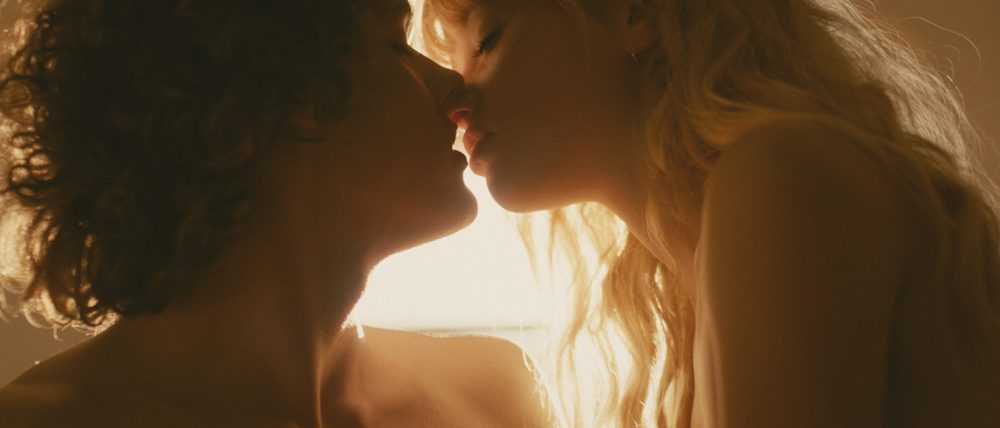
Image courtesy of Metrodome
You first got the idea for Bang Gang from real life events. Could you tell us about those?
I came across a bit of news in the ‘90s, I think in ’99, about a high school in the States where the kids had just gone wild and got syphilis and then suddenly the whole town knew about it. I was intrigued. I came myself from a small town, middle-class background. Just like them we were very bored. We wanted to explore things, we drank a little bit and did drugs, but we never got there. I wanted to know, how do you get that far?
Did you draw from your own experiences as a teenager?
I guess I’ve always been very intense. You get better at handling it as an adult, but when you’re a teenage girl, your hormones go wild and your sensitivity is really high and you’re unaware of the tools you use to navigate the seas of love, friendships and emotions. Everything is so horrible and so amazing and so low and so high. I thought that was interesting to explore in a fiction so it would be very far removed from me! (laughs).
So, there wasn’t a particular character that represented you?
The characters who resemble me the most are probably George and Gabriel: the two sides of the same kind of sensitivities, but it just shows in different ways. I’m very much an explorer, like George. When I decide to do something, I just go for it, and I probably think about what it means afterwards, which is often a problem when you’re a teenage girl. I’ve always been a bit of a loner as well.
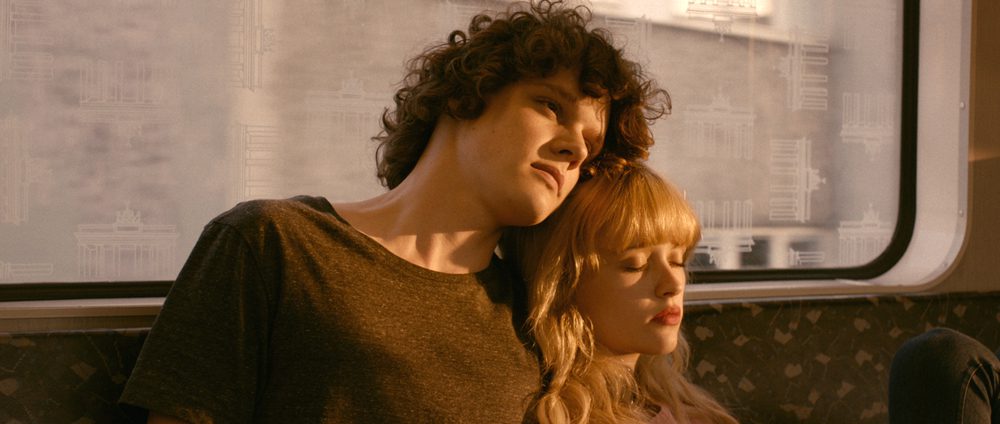
Image courtesy of Metrodome
How much did you adapt the story to reflect how teenagers live today, for example their use of social media?
Well, if you think about high school as being the first social network, it’s pretty much the same thing, the same exaggerations. Some information would suddenly do the round of everyone very quickly and it just happens on cell phones now. It was a matter of understanding what was pertinent, what was right, in terms of scale. When I started writing, Instagram didn’t exist, Facebook had just started, so everything was brand new. I think the very first draft, I had to explain what Facebook was, and I thought, thank God I don’t have to keep that in (laughs).
The kids in the film also seem very at home with pornography. Do you think this is influenced by the access they get through the Internet?
We didn’t have that access that’s for sure. A lot of us had fathers who had porn magazines stashed somewhere. My dad used to like – he’s going to kill me (laughs) – porn literature, so there was this magazine with erotica short stories and I remember sneaking in and reading them. There were no pictures, so it was very much about your imagination. Nowadays, they don’t have anything left to the imagination. It’s straightforward to the point where it goes beyond what happens in real life, sexually.
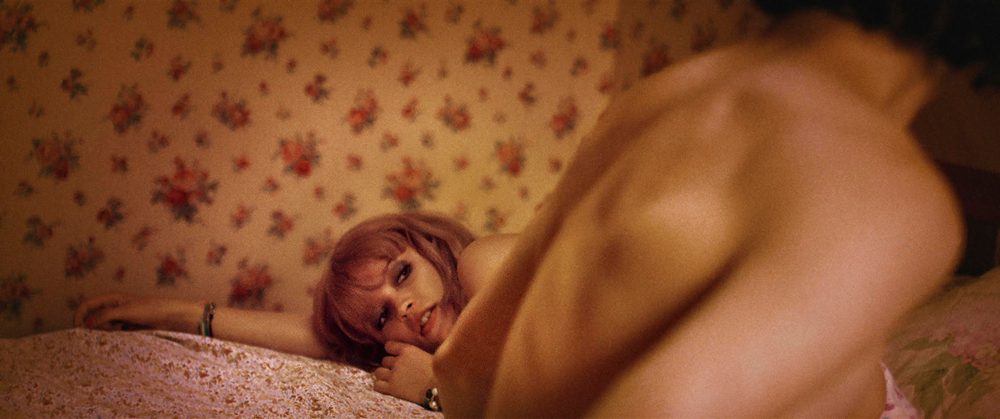
Image courtesy of Metrodome
The sex scenes aren’t gratuitous but some of them are quite graphic, as is the nudity. How did you go about directing these with such young actors?
When you think of it, it’s actually not graphic at all, but it’s interesting that you think it’s graphic. I tried to make it credible. I didn’t want people to think I was shying away from the subject, but I had very little interest in being frontal about it, so I just tried to punctuate the film with a couple of images that are very straightforward, like when the two guys have sex doggy style in the living room with the two girls. But, if you look at the image, it’s from an angle and it’s not really straightforward, it’s about what you think it is. It’s the magic of editing. They’re very much in love and they want to have sex, so there’s a lot of sex in the film, but a lot of the scenes are framed on the faces. That was important for me because I think a lot of what happens with sex happens in your mind.
But, it’s still not the type of teenage drama that American audiences are used to seeing. Are you worried about their reaction?
People actually are really used to seeing much more frontal things on TV now. For some reason, cinema’s a little more conservative. I think what I’m showing is 10% of what you see on TV nowadays, but I had to navigate the waters of censorship for this film a lot so that it wouldn’t be condemned from the start.
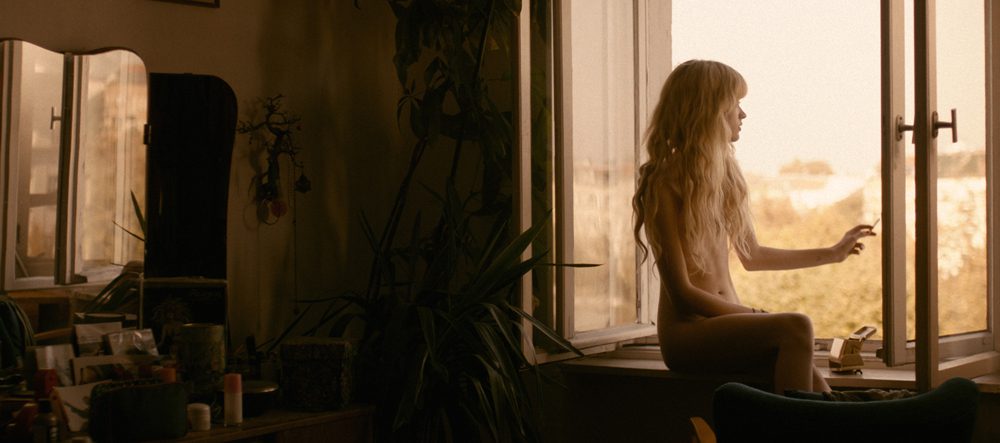
Image courtesy of Metrodome
Central to the story is the relationship between the two girls, but they fall out over a guy. What do you think this says about female relationships? Do you think girls are less loyal than boys?
No, no, it doesn’t say that at all, actually. It’s more about how things change so quickly at that age. You get enthused by someone so rapidly and the next day it’s over, and it’s dramatic. I don’t think you would have had that sense had this story been told in a TV show over several episodes.
Throughout the film, we hear radio coverage of a number of rail accidents that are taking place. What was the purpose of this?
I studied Ancient Greek and in ancient tragedies, a lot of the time the world echoes the inner state of the characters and I’ve always found it very poetic. We’ve all had that one intense year, where suddenly we’ve felt we’re in sync with everything that’s going on in the world, and either falling apart or blossoming, but this very intense sense of vitality which I think is quite exciting dramatically.
When I was writing, suddenly everything changed for us in France. There were the terrorism attacks and you could really feel that the teenagers were not going to be the same. We had 10, 20 years of very bored adolescents who were just not that interested in politics, and then suddenly people became aware that it was very important again and I think Bang Gang reflects that end of an era. You know, that you’re so bored that the only excitement you get in life is from sex.
Bang Gang (A Modern Love Story) is in UK cinemas and available on demand from 17th June.
Interview / Huma Humayun
Follow her on Twitter.

Discover the latest issue of Schön!.
Now available in print, as an ebook, online and on any mobile device.












